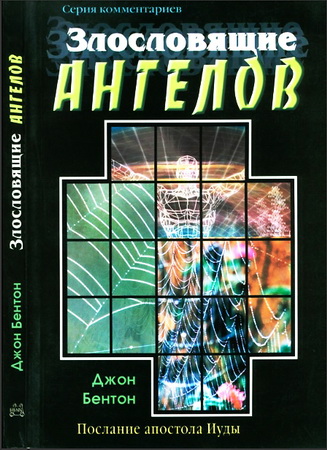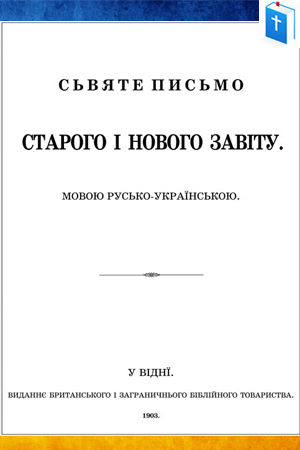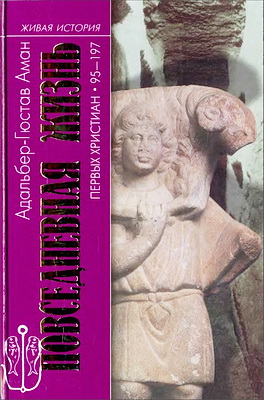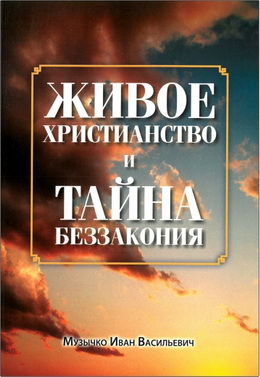
The Cambridge Dictionary of Christian Theology
The Cambridge Dictionary of Christian Theology
Edited by Ian A. McFarland, David A. S. Fergusson, Karen Kilby and Iain R. Torrance. - Cambridge, New York, Melbourne, Madrid, Cape Town, Singapore, São Paulo, Delhi, Dubai, Tokyo, Mexico City: Cambridge University Press, 2011. – 572 p.
ISBN-10: 0521880920
ISBN-13: 978-0521880923
There is no shortage of Christian theological reference works in print. Moreover, the proliferation of web-based resources (most notably the increasingly comprehensive Wikipedia) means that basic information about even the most obscure theological terms is rarely more than a few mouse clicks away. Under these circumstances the production of yet another theological dictionary may seem unnecessary at best and reactionary at worst. Consequently, before embarking upon this project, we discussed at some length what possible justification there could be for The Cambridge Dictionary of Christian Theology.
In part we were encouraged by our sister publication, Robert Audi's Cambridge Dictionary of Philosophy, which is widely recognized as having achieved remarkable compactness and accessibility without sacrificing accuracy or comprehensiveness. At the same time, we recognized that the extraordinarily pluriform character of contemporary Christian theology, including but also cutting across traditional confessional and juridical boundaries, raised particular challenges. Nevertheless, it seemed to us that there was a place - and, indeed, a need - for a single-volume reference work that was at once comprehensive in its coverage of topics, inclusive in the many perspectives of its contributors, and, most importantly, committed to a specifically theological examination of each topic considered. In short, we wanted a text that would exhibit what Hans Frei once referred to as a 'generous orthodoxy': coherent and capacious, but neither partisan nor blinkered.
In order to achieve these aims, we sought to enlist the services of a broad range of prominent theologians writing in English. Given the many commitments scholars face we have been able to reach this goal only very imperfectly, but we are all the more grateful for the generosity of the many colleagues who agreed to contribute to this volume. In enlisting their services, we judged it important to give the Dictionary a structure that would allow their individual contributions to be combined most effectively for the reader. Thus, while the Dictionary's specifically theological (as opposed to historical or sociological) focus includes a comprehensive coverage of relevant topics, no less important than the range of material included is its level of integration. While the Dictionary is formatted conventionally, we have tried to ensure that the length and focus of individual articles make it as easy as possible for the reader to move between multiple entries in order to gain a well-rounded, appropriately contextual understanding of related theological concepts.
Entries range from a minimum of 250 to a maximum of 2,000 words in length. We settled on the minimum length of 250 words on the grounds that an important feature of a theological dictionary should be that it devotes enough space to terms and concepts to allow the reader to see how they are actually used in theological conversation. We have therefore not included any purely lexical entries. At the same time, we have opted for an upper limit of 2,000 words as an appropriate means of preserving the concision expected in a dictionary, which, we felt, would be eroded if individual entries were to encroach upon the length of a book chapter. Nevertheless, these longer entries contribute to the distinctive character of the Dictionary, since they provide a framework through which the various shorter entries are integrated both with one another and with larger conceptual fields.
* * *
Natural Science
Natural science is a modern method of understanding the physical universe based on observation, hypothesis formation, and experimental verification. It strives to express its understanding of natural phenomena as far as possible in terms of testable hypotheses. Natural science is thus distinct from what had traditionally been called natural philosophy not only by virtue of its emphasis on experimentation, but also because of a preference for expressing the intelligibility of observed data in quantitative terms. The book of nature, said G. Galilei (1564-1642), 'is written in mathematical language, and the letters are triangles, circles and other geometrical figures, without which means it is humanly impossible to comprehend a single word' (Opere 4.171). Although contemporary philosophy of science has shown that the practice of assessing the relative merits of different hypotheses is often less procedurally regular than classic models suggest, it remains the case that the combination of experimentation and mathematical formulation has dominated natural scientists' self-understanding of their work since the seventeenth century.
Natural science comprises the disciplines of astronomy, geology, chemistry, physics, and biology, as well as numerous cross-disciplines such as oceanography, environmental science, and computer science. Its method corresponds to patterns of human cognition consisting of experience, understanding, and judgement. Science begins with the observation of a deliberately restricted range of data in the natural world. Second, it formulates hypotheses (ideally in mathematical terms) in order to express the intelligible relationships of the various elements observed. These relationships may then be correlated with the data of additional scientific experiments and hypotheses so that a comprehensive 'theory' will emerge, such as the Copernican heliocentric theory, I. Newton's (1643-1727) and A. Einstein's (1879-1955) gravitational theories, and C. Darwin's (1809-82) theory of evolution . Third, the method of natural science requires an ongoing process of testing and critical reflection in order to arrive at an accurate judgement as to whether its hypothetical or theoretical understanding in fact corresponds to the observed data. As new data become available the hypotheses and theories may need to undergo revision.
Both the method and discoveries of the natural sciences have enormous implications for Christian theology. Because of the widespread influence of scientific method and its impressive applications to technology, the question has often arisen in the modern and contemporary world as to whether the natural sciences have rendered theological understanding of the world intellectually superfluous. Methodologically speaking, there are at least four distinct ways of responding to this question: conflict, contrast, contact, and confirmation.
Conflict thinks of scientific method and theology as mutually exclusive. Both theists and non-theists may claim that science and theology are cognitively incompatible. Some theists since the time of Galileo have considered science inferior, erroneous, or negligible in comparison with the blinding truth of revelation . Since the time of Darwin a considerable number of Christians, for example, have taken evolutionary biology to be incompatible with biblical faith.
However, the conflict approach is also endorsed by scientists and scientifically educated intellectuals who have come to believe that scientific method, as described above, is the only reliable way to arrive at truthful understanding of anything whatsoever. This belief is usually called 'scientism'. It is the epistemic foundation of the world view known as 'scientific naturalism'. Scientific naturalism, in turn, is the belief that only the world available to science can appropriately be called real. Accordingly, theological reference to God or anything 'spiritual' is considered obsolete and illusory.
Logically speaking, in order to take science and theology as conflicting methods of understanding, one first has to assume that they are both attempting to accomplish the same cognitional objective. Devotees of scientism and scientific naturalism, for example, almost invariably assume that theology is a primitive scientific attempt to understand phenomena that modern natural science can now explain much more accurately.
Advocates of the 'contrast' approach, on the other hand, argue that science and theology cannot really compete, contradict, or conflict with each other since they are addressing radically distinct kinds of questions. Proper theological method does not and should not claim to provide scientific information, nor should theologians ever embrace particular scientific hypotheses or theories for theological reasons. The methods and results of scientific and theological enquiry exist in sharp contrast, not contradiction, to each other.
The contrast approach, therefore, nullifies the common claim made by followers of scientism and scientific naturalism that 'Ockham's razor' demonstrates the superiority of scientific explanations over theological ones. Ockham's razor is a maxim that instructs enquirers not to multiply explanations unnecessarily. It maintains that, in explaining natural phenomena, a good rule of thumb is to choose the simplest hypothesis - the one that makes the fewest assumptions - if there are competing hypotheses. However, the whole point of the contrast approach is to make it clear that science and theology cannot be competing ways of understanding - in which case it makes no sense to compare them or choose between them.
There is, of course, a real conflict between theology and scientism, as well as between scientific naturalism and any particular theological world view. But there can be no real conflict between science and theology rightly understood from a contrast perspective. Hence, Ockham's razor has no meaningful application to real issues in science and theology. It only seems to be a useful device if one first assumes, as advocates of scientism often do, that theology is an alternative and competing set of attempts to provide scientific explanations.
A third approach agrees that it is important to distinguish carefully between scientific and theological methods. However, it maintains that contrast alone fails to bring a satisfying resolution to the question of theology's relationship to the natural sciences. The mind needs to make clear distinctions, of course, but not as an end in itself. Human beings naturally strive to unify knowledge, but to do so without oversimplification they need to relate different kinds of understanding to one another in comprehensive syntheses that preserve rather than blur necessary distinctions.
This 'contact' approach acknowledges that in the real world it is the same human mind that entertains both scientific and theological ideas. At the origins of both science and theology lies one and the same human desire to understand and know. So theology and science are not opposed. Nor are they so independent of each other that theological understanding remains unaffected by new scientific discoveries.
It is the task of a constructive theology of nature, therefore, to clarify some of the ways in which scientific discoveries and theories, without being confused with theology, can nonetheless have a bearing on theology's understanding of God, creation, sin, redemption, and eschatology. Such a task becomes imperative especially during and after periods of fresh discovery and theoretical innovation. Since it is not the task of religious faith or theology to make scientific discoveries or to provide scientific information, it is clearly inappropriate for scientific thinkers to reproach biblical authors for not having revealed the exact age of the universe, the evidence for biological evolution, or any other information that human reason can arrive at on its own. But, if it is inappropriate to fault theologians for not having anticipated Darwin's theories, it is worthy of comment, if not reproach, that even at the beginning of the twenty-first century Christian theologians have barely begun the project of developing a theology of evolution that would allow Christians everywhere to embrace enthusiastically the well-established scientific evidence for life's evolution.
A fourth approach highlights the significant ways in which theology in the West positively supports or 'confirms' the adventure of scientific discovery. No scientist, this approach proposes, can initiate or sustain a process of enquiry into nature apart from possessing from the start a tacit faith that the real world is intelligible. Science, like all kinds of human knowing, begins with what philosopher M. Polanyi (1891-1976) calls a deeply personal 'fiduciary' aspect (from the Latin fides, 'trust') consisting especially of the belief that deeper understanding will reward judicious enquiry.
However, is there any basis for such trust? The confirmation approach declares that there is, but only if God exists. The reality of an infinitely intelligent ground of rationality would justify the scientist's trust in the world's endless and inexhaustible intelligibility. Theology does not need to seek intellectual legitimacy by placing itself alongside science as a competing set of 'answers' to questions that science can deal with quite well on its own. Rather, theology's appropriate function in relationship to science is that of responding to ultimate questions such as why the scientist should bother to seek intelligibility and truth at all. Believing in the existence of an infinite horizon of intelligibility - God, in other words - should justify and confirm the scientific search for understanding and truth.
- I. G. Barbour, Religion and Science: Historical and Contemporary Issues (HarperSanFrancisco, 1997).
- J. F. Haught, Science and Religion: From Conflict to Conversation (Paulist Press, 1995).
- B. Lonergan, Insight: A Study of Human Understanding, 3rd edn (Philosophical Library, 1970).
- M. Polanyi, Personal Knowledge (Harper & Row, 1964).
- A. N. Whitehead, Science and the Modern World (Free Press, 1925).
John F. Haught





Комментарии
Пока нет комментариев. Будьте первым!